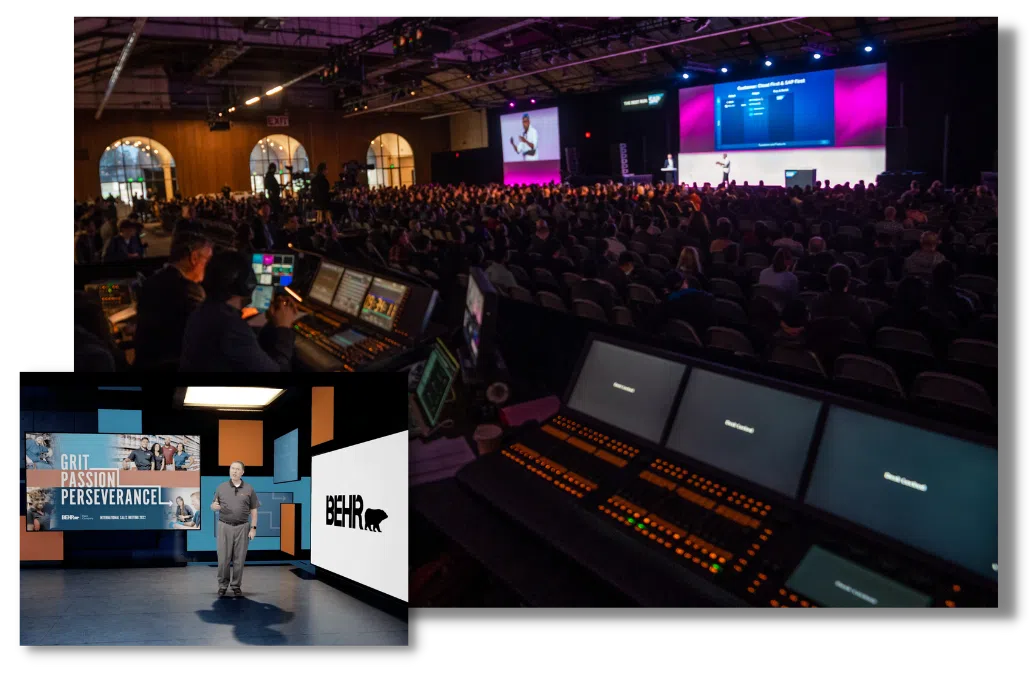Comprehending Just How Events Manufacturing Works: A Comprehensive Introduction of the Process
The intricacies of event production demand a methodical method that integrates several phases, each playing an essential role in the overall success of an event. Understanding the nuances of budgeting, resource allocation, and on-site management is vital for any type of expert in this area.
Preliminary Preparation and Idea Advancement
Effective initial planning and concept development act as the foundation for successful occasions manufacturing. This stage entails specifying the event's purpose, target audience, and desired outcomes. A clear vision is important; it guides all succeeding choices and assists align the group's initiatives toward a common objective.
During this phase, conceptualizing sessions can be vital. Involving stakeholders, including customers, enrollers, and potential participants, promotes a collective environment that creates ingenious ideas. In addition, complete market research study should be performed to comprehend trends, choices, and potential obstacles.
When the concept is developed, it is essential to develop an in-depth event synopsis. This summary ought to consist of the event's motif, format, and crucial activities. Developing a timeline is equally crucial, as it helps to handle jobs and due dates properly.
Budgeting and Resource Allowance
With a solid principle in position, focus must transform to budgeting and source allotment, which are crucial components in carrying out the occasion successfully. A distinct spending plan acts as a roadmap, outlining all anticipated costs and offered sources. It begins with determining fixed and variable costs, consisting of place rental, wedding catering, marketing, staffing, and innovation. Each group needs to be meticulously calculated to prevent overspending and to make sure that funds are designated suitably.
Resource allocation involves assigning both human and financial resources to various tasks and components of the event. Prioritization is key; essential elements should receive ample financing while less vital elements might need a much more traditional method. Additionally, contingency planning is crucial-- assigning a portion of the spending plan for unanticipated expenditures can alleviate financial threats.
In addition, efficient communication amongst team participants relating to budget restraints promotes cooperation and advancement. This promotes the accountable use resources and encourages innovative solutions to remain within budget. Eventually, a strategic technique to budgeting and resource allowance prepares for a successful occasion, enabling organizers to concentrate on providing a remarkable experience for attendees while preserving economic integrity.
Logistics and Control
Navigating the complexities of logistics and control is essential for the smooth implementation of any occasion. This stage involves precise preparation and company to ensure that all elements operate in consistency. Crucial element consist of place option, transportation plans, and the organizing of numerous tasks.
Effective logistics begins with a detailed assessment of the location's limitations and abilities. This consists of recognizing the layout, access points, and available resources. When the location is validated, transport logistics have to be established, encompassing the movement of attendees, equipment, and materials. Collaborating these aspects needs partnership with vendors, providers, and transportation services to ensure timely deliveries and pickups.
An additional essential facet is the advancement of a detailed timeline that outlines all logistical elements leading up to the occasion. This timeline acts as a roadmap, outlining vital milestones and target dates for tasks such as tools arrangement, providing solutions, and audiovisual setups. Regular interaction with all stakeholders is crucial to deal with any possible problems proactively.
Execution and On-Site Monitoring
Successful implementation and on-site administration are essential for transforming thorough plans into fact during an event. Their capacity to Our site make real-time decisions can substantially influence the event's success.
A distinct timetable is important, functioning as a roadmap for all tasks. Event managers need to ensure that setup happens promptly, adhering to timelines for sound checks, catering shipments, and visitor arrivals. Effective problem-solving skills are likewise essential; unexpected challenges can occur, needing fast reasoning and flexibility to maintain the event's flow.
This degree of involvement not just improves the overall experience yet additionally shows the professionalism and reliability of the event group. Inevitably, successful execution and on-site monitoring joint on comprehensive preparation, reliable communication, and a commitment to supplying an outstanding occasion for all included.

Post-Event Evaluation and Feedback
The culmination of any event lies not just in its execution however additionally in the comprehensive examination that adheres to. Post-event assessment is necessary for establishing the overall success of the event and determining locations for renovation. This procedure generally includes event responses from numerous stakeholders, consisting of attendees, vendors, and employee, to acquire a read what he said detailed point of view on their experiences.
To structure the analysis, occasion coordinators usually utilize surveys and interviews, concentrating on key performance indicators such as attendee satisfaction, logistical efficiency, and budget adherence. Analyzing this data allows planners to assess whether the occasion fulfilled its purposes and to comprehend the staminas and weaknesses of the execution.
By methodically dealing with responses and executing changes, occasion professionals can boost their techniques, inevitably leading to more impactful and successful occasions. In conclusion, post-event examination is a vital action in the occasion production procedure that ensures continuous development and excellence in future undertakings (Event Productions).
Conclusion

The intricacies of occasion manufacturing demand a methodical strategy that integrates several phases, each playing a critical function in the total success of an occasion.With a solid idea in area, focus should turn to budgeting and source appropriation, which are important elements in implementing the occasion successfully.Resource allowance entails appointing both human and monetary resources to different jobs and components of the event. Ultimately, a calculated technique to budgeting and source appropriation lays the groundwork for i loved this a successful event, enabling planners to focus on delivering a memorable experience for guests while preserving monetary stability.
